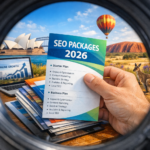
Introduction
With the surge in AI tools like ChatGPT, Jasper, and Copy.ai, the SEO community has been debating a pressing question: Does using AI-generated content harm your Google rankings?
A recent in-depth study by Ahrefs has delivered surprising data-driven answers: AI content, when used strategically, does not hurt your Google rankings. In fact, it is becoming a fundamental part of how content is produced online.
This blog post provides a fresh, SEO-friendly breakdown of the key findings from the Ahrefs study and what it means for digital marketers and content creators in 2025.
AI-Generated Content: The Reality in Top Google Results
Ahrefs analyzed over 600,000 top-ranking pages across 100,000 keywords to examine how much of the content was AI-written, human-written, or a combination of both. The results showed an overwhelming dominance of AI-assisted content.
AI Content Usage in Top-Ranking Pages
| Content Type | Percentage of Pages |
|---|---|
| Purely Human-Written | 13.5% |
| Purely AI-Generated | 4.6% |
| Mixed (Human + AI) | 81.9% |
This data clearly shows that AI-generated content is already mainstream among top-performing websites.
Does More AI Mean Lower Google Rankings?
Contrary to popular belief, the use of AI in content does not negatively impact Google rankings. Ahrefs found no strong correlation between the percentage of AI in a page and its ranking position.
AI Proportion vs. Ranking Position
| AI Content Proportion | Ranking Trend |
| 1-10% AI | Common in top 10 |
| 11-40% AI | Most common overall |
| 41-70% AI | Moderately frequent |
| 71-99% AI | Rare in top 5 ranks |
| 100% AI | Rarely hits #1 rank |
While some fully AI-generated pages rank, the top-performing content tends to be hybrid, with a human editing layer enhancing structure, depth, and factual accuracy.
Google’s Official Stance on AI Content
Google’s recent Search Central documentation states:
“Using automation—including AI—to generate content with the primary purpose of manipulating ranking in search results is a violation. However, content created primarily to help users is not.”
This means that AI tools are acceptable, as long as:
- The content is valuable to users
- It provides original insights or analysis
- It avoids spammy, low-effort automation
When AI Content Hurts Rankings
AI content can backfire when it’s used inappropriately. Here are the red flags:
| Problematic AI Use Case | Potential Consequence |
| Duplicate or scraped content | Google penalty |
| Keyword-stuffed AI spam | Lower ranking or de-indexing |
| No factual verification or editing | Misinformation & bounce rate |
To succeed with AI in 2025, combine automation with strategic human oversight.
The Best Approach: AI + Human Collaboration
Most high-ranking pages combine the speed of AI with the creativity, tone, and credibility of a human editor.
Benefits of Hybrid Content Creation
| Benefit | Description |
| Faster Content Production | AI generates drafts in seconds |
| Higher Quality Control | Humans ensure context and credibility |
| SEO Optimization | Strategic keyword use with readability |
| Brand Tone & Personalization | Human voice gives content unique identity |
How to Use AI Content Without Risk
If you want to use AI safely and effectively, here’s a strategy:
- Use AI for Drafting – Let AI create outlines and rough drafts.
- Add Value with Human Editing – Improve clarity, tone, and structure.
- Fact-Check Everything – Especially stats, laws, and health/finance claims.
- Optimize for Search – Use AI tools to support SEO best practices.
- Maintain Brand Voice – Ensure the final content aligns with your tone.
Final Thoughts
The data proves what many marketers already suspected: AI-generated content is not only safe but essential when paired with human creativity. Google cares more about the usefulness and quality of content than whether a robot or human wrote it.
AI is not the end of SEO. It’s the evolution.
Frequently Asked Questions (FAQs)
1. Does Google penalize AI-generated content?
No, Google does not penalize AI-generated content as long as it’s high quality, useful, and not spammy.
2. Can 100% AI content rank on Google?
Yes, but it rarely reaches the #1 position. Most high-ranking pages use a mix of AI and human input.
3. Should I disclose AI usage in my content?
Currently, there is no requirement to disclose AI usage. Focus on providing valuable, accurate information.
4. What is the best use of AI in content writing?
AI works best for generating ideas, outlines, and first drafts. Always refine with human editing for the best results.
5. Are AI content detectors reliable?
Not 100%. AI detectors use probabilities and may mislabel content. Use them as guidance—not proof.
Let us know if you want to implement a scalable AI + SEO content strategy for your brand. We’re here to help you grow!






